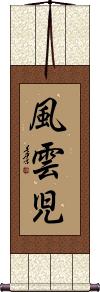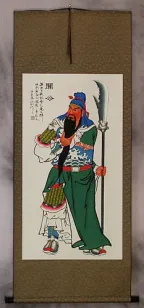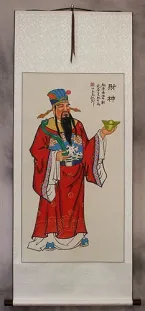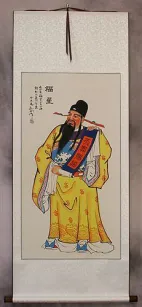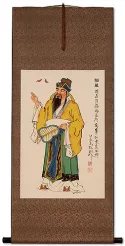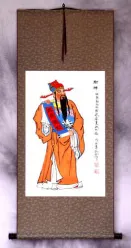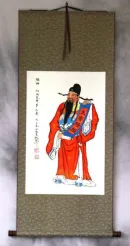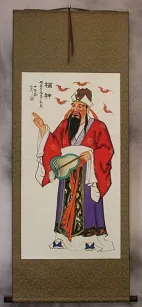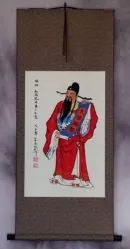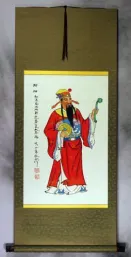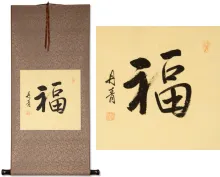Many custom options...
And formats...

Soldier of Fortune in Chinese / Japanese...
Buy a Soldier of Fortune calligraphy wall scroll here!
Personalize your custom “Soldier of Fortune” project by clicking the button next to your favorite “Soldier of Fortune” title below...
Soldier of Fortune
Soldier of Fortune
This in-stock artwork might be what you are looking for, and ships right away...
Good Fortune / Prosperity Saint Wall Scroll
Discounted Blemished
Gallery Price: $71.00
Your Price: $39.00
Gallery Price: $54.00
Your Price: $30.00
Gallery Price: $54.00
Your Price: $30.00
Gallery Price: $120.00
Your Price: $59.88
Gallery Price: $65.00
Your Price: $39.88
Gallery Price: $31.00
Your Price: $16.88
Gallery Price: $90.00
Your Price: $49.88
Handmade Good Luck Special Calligraphy Wall Scroll
Discounted Blemished
Gallery Price: $35.00
Your Price: $19.00
Not the results for Soldier of Fortune that you were looking for?
Below are some entries from our dictionary that may match your Soldier of Fortune search...
| Characters If shown, 2nd row is Simp. Chinese |
Pronunciation Romanization |
Simple Dictionary Definition |
風雲児 see styles |
fuuunji / fuunji ふううんじ |
More info & calligraphy: Soldier of Fortune |
兵痞 see styles |
bīng pǐ bing1 pi3 ping p`i ping pi |
army riffraff; army ruffian; soldier of fortune |
一攫千金を夢見る男 see styles |
ikkakusenkinoyumemiruotoko いっかくせんきんをゆめみるおとこ |
(work) Soldier of Fortune (1955 movie); (wk) Soldier of Fortune (1955 movie) |
Variations: |
nobushi のぶし |
(1) wandering samurai; soldier of fortune; brigand; mountain-dwelling robber; (2) (野伏, 野臥 only) hermit; mountain ascetic; itinerant priest |
The following table may be helpful for those studying Chinese or Japanese...
| Title | Characters | Romaji (Romanized Japanese) | Various forms of Romanized Chinese | |
| Soldier of Fortune | 雇佣兵 | gù yōng bīng gu4 yong1 bing1 gu yong bing guyongbing | ku yung ping kuyungping |
|
| Soldier of Fortune | 風雲児 | fuu un ji / fuuunji / fu un ji | ||
Successful Chinese Character and Japanese Kanji calligraphy searches within the last few hours...

